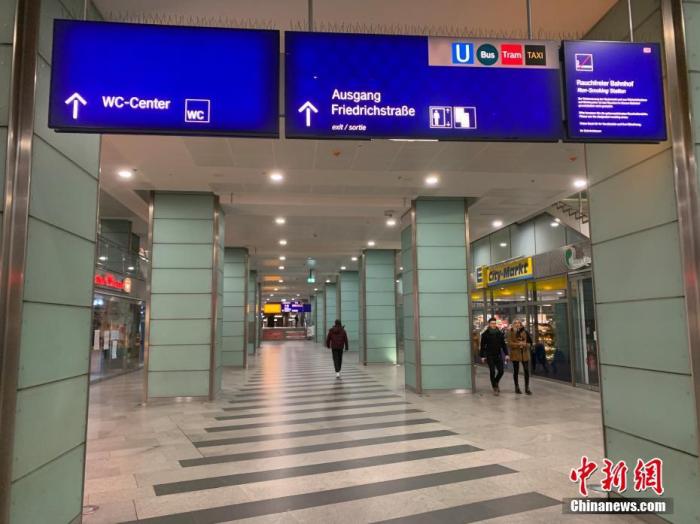China News Service, April 10, according to the European Press quoted by German media reports, on the 9th local time, German researchers released a mid-term report of a sample survey for areas with severe epidemics. The report shows that about 15% of the residents of the German epidemic-prone area have produced antibodies against the new coronavirus. It is reported that the investigation aims to understand the transmission route and risk of the new coronary pneumonia virus.
Data map: On March 23 local time, Berlin and the states of Germany began to implement the most stringent foot ban since the outbreak of the new coronary pneumonia. The station shopping area that was once crowded with people in the past is now cold. China News Service reporter Peng Dawei
According to reports, in this sample survey, researchers conducted a survey and analysis of hundreds of residents in the town of Gungelt in the city of Heinsberg in North Rhine-Westphalia. It is about 15% and the mortality rate is about 0.37%. In addition, about 15% of residents have developed immunity to the virus.
Researcher Gunther Hartman, who is responsible for the investigation, said that it is currently understood that the immunity of people who produce antibodies should be valid for 6 to 18 months.
Entrusted by the Government of NRW, the researcher of the University of Bonn virologist Hendrik Strecker said that preliminary results show that it is possible to gradually relax as long as sanitary measures are ensured and citizens comply with the relevant rules of conduct Control measures.
Stryker pointed out that because most citizens can consciously abide by the regulations, it is possible to enter the "second stage", which is to start to relax the isolation control while ensuring sanitary conditions and codes of conduct. The important thing is to continue to do a good job of hygiene and distance, and to protect the high-risk groups to the greatest extent. He emphasized that this was only his personal opinion, and it was ultimately decided by the government.
Stephen Pusch, the mayor of Heinsberg, said that strict protection measures have come into effect, and the number of new infections is decreasing, but it cannot be said that they have been completely out of danger.
The governor of North Rhine-Westphalia Amin Lachette said that in addition to understanding the route of infection and controlling the epidemic, it is also necessary to find a way out of the crisis. The government needs a plan that can balance freedom, health, economy and protect the people, so more data and research are needed.
It is reported that the city of Heinsberg was the first outbreak city in North Rhine-Westphalia and one of the most severe cities in Germany. According to data released by the city on April 8, since February 25, a total of 1,527 cases have been diagnosed in the city, of which 969 have recovered and 48 have died. The town of Gungart has 11,000 people and is the most severely affected town in Heinsberg. (Jingying)

